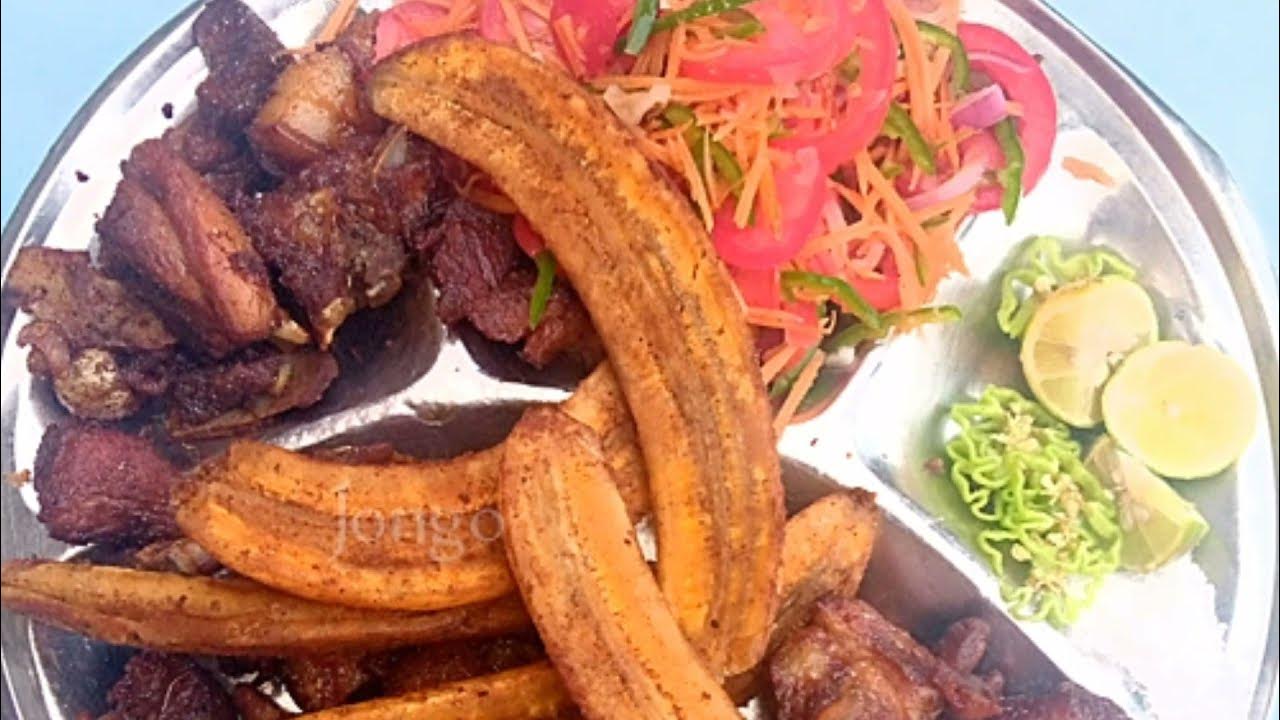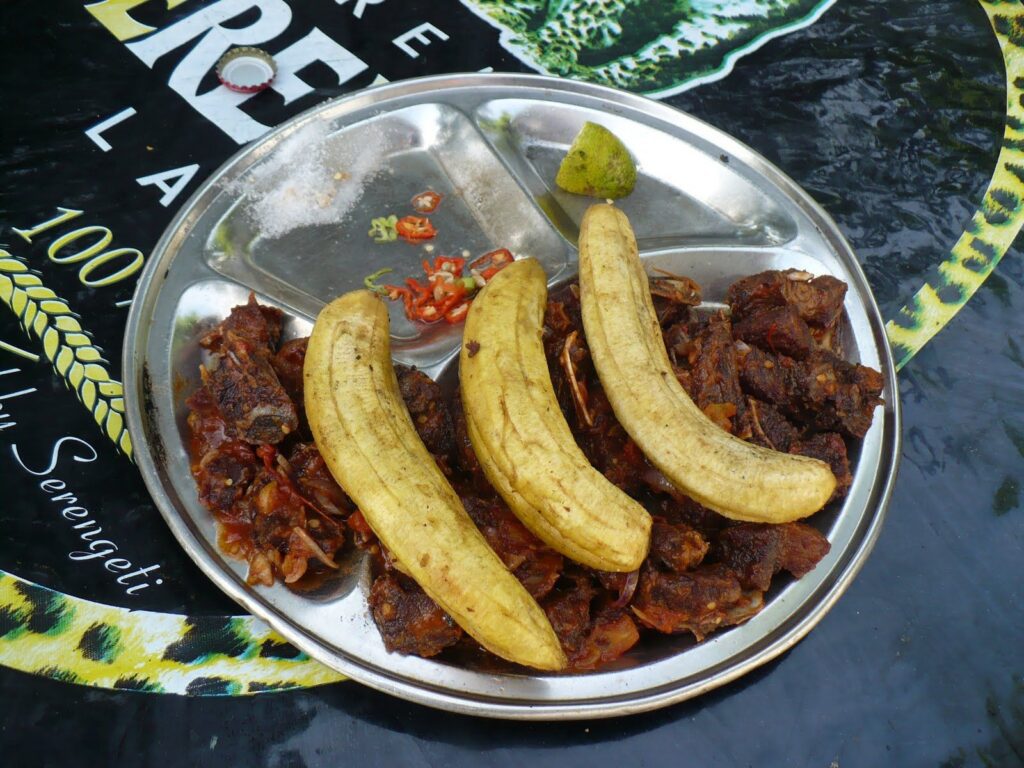Kitimoto pork is a unique delicacy that you can’t leave Tanzania without enjoying. This meal has an interesting history and acquires a Tanzanian taste through its preparation. Every guest who visits Tanzania has a positive story about this meal that’s a gesture of kindness and hospitality in the land of the Swahili people. This article informs you why this food was named ‘kitimoto’ and how it’s prepared.
Where Did Kitimoto Pork Come From?
This delicacy got its name from a trend by a group of people whose religious beliefs didn’t allow them to eat pork. However, tales of how great the food was pushed them to taste although secretly. Word has it that they would sneak to local eateries late in the night and order the delicacy. Due to fear of being ostracized from their religious outfits, they ate hurriedly and restlessly as if the seats were hot. Thus, the meal was christened kitimoto pork. Amani Mwafrika, a local food vendor apprised of the dish’s history smilingly narrates that most followers of the religious sect do not allow its members to eat pork.

Kitimoto pork is a unique delicacy that you can’t leave Tanzania without enjoying. Photo/The Green Voice/YouTube
“It dates back to many decades ago. Some of our brothers professing a different faith caught word of the meal from their counterpart whose faith didn’t restrict them from eating pork,” Mwafrika explains.
He paints a picture of men who ate and enjoyed the meal in the most uncertain circumstances.
“What was fascinating for me as a food vendor was serving this meal to people who ate while looking over their shoulder. You would think that someone was chasing them. And anytime a new member came to my food kiosk, they would tell me not to tell anyone that they eat kitimoto pork because it’s an insult to their faith.
Fast forward, they don’t hide as much although there are a few who shy away from having this meal,” he adds. Mwafrika’s food kiosk in Arusha is a popular spot for this particular meal and many other traditional Tanzanian meals.
However, you won’t enjoy this delicacy if you’re in Zanzibar due to its heavy Muslim population despite having many other non-Muslim visitors. Islam forbids Muslims from eating pork as it is haram (impure). The Quran explicitly speaks against this. Biblical analogies point to impurity in pigs as read in the story where Jesus cast demons away and threw them to the swine.
There also exists narrations of Muslims torching places serving pork in Tanzania in the early 90s. However, religious tolerance was brokered and non-Muslims peacefully enjoyed kitimoto pork.
What’s Kitimoto Pork?
Ideally, it refers to deep-fried pork tenderloin baked in special Tanzanian flavours. It’s usually served alongside boiled bananas – locally called mshale or mzuzu – as an accompaniment.

A delicious serving of kitimoto pork. Photo/Pin Page
The servings are generous, sizzling hot and delicious. One thing for certain about eateries across Tanzania is their generosity of portions and affordability. A tidy plate of 1kg kitimoto serving costs $5 and you eat to your fill. The low pricing of meals and huge portions served challenge neighbouring countries such as Kenya where the prices are higher. Food portions also depend on where you are eating.
Kitomoto Recipe
You need the following ingredients to prepare a delicious pork serving.
- Pork tenderloin chops (amount depends on your appetite and the number of people eating)
- Green bananas
- Chili
- Salt
- Garlic
- Onions
- Cooking oil
It’s an easy hack for those who know their way around the kitchen. Start with sizing down the pork tenderloins into small chops and sprinkle some salt. Heat your cooking oil and deep the pork chops when the oil is moderately hot. Allow them to cook on average heat until they are golden brown.
In a separate pan, place your peeled green bananas and let them boil for 10 minutes. Remove them and shallowly fry the onions and garlic in a pan with a little oil. Saute them with chilli and salt. Get your fried pork chops and mix them with the shallowly fried garlic and onions.








